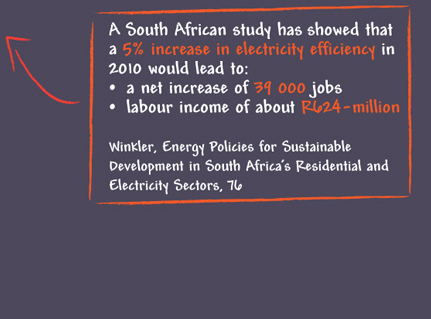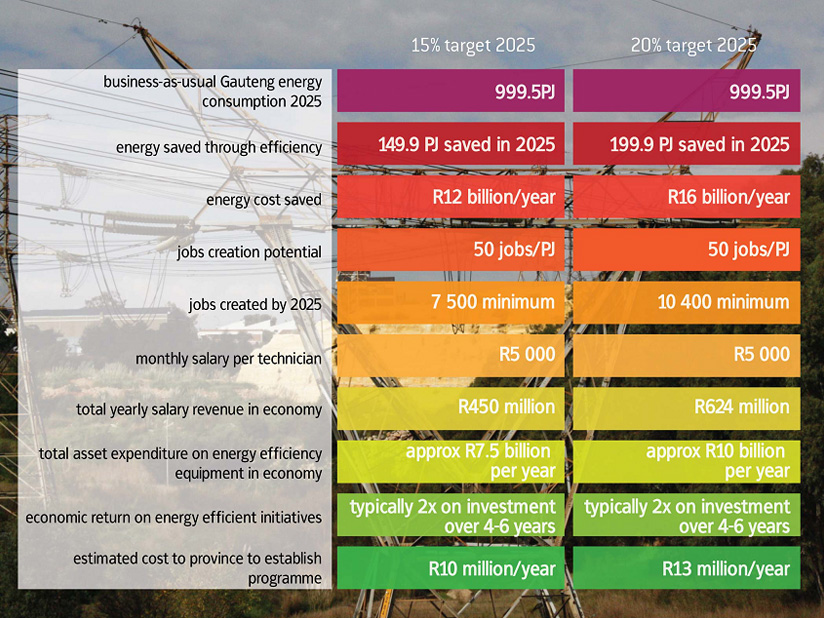
| introduction |
| background |
| role of cities |
| SA and the GCR |
| green initiatives |
| food |
| solar energy |
| energy efficiency |
| CSP |
| water and sanitation |
| waste |
| mobilising the region |
| energy efficiency – the ‘neglected’ frontier | |
'Energy efficiency may be the farthest-reaching, certainly the least-polluting and clearly the fastest-growing energy success story of the last 40 years. The irony is that it is also the most invisible, the least understood and in serious danger of being overlooked as the most cost-effective and economically viable opportunity for addressing the challenges of climate change and maintaining a strong economy.' Laitner, 'Understanding the Size of the Energy Efficiency Resource', 351 Between 1973 and 2005, energy efficiency had already saved up to 58% of what was actually consumed. But major improvements are still possible.
|
|
DID YOU KNOW A 20% energy efficiency target could:
The Provincial spend for a programme to enable greater energy efficiency would be around R13-million per year |
|
out with the old |
|
The traditional way of creating energy capacity is to create more supply. However, this can also be achieved by reducing demand – which is a more sustainable achievement.
|
 |
but there’s more… |
|
The benefits of industrial energy efficiency in South Africa also include:
The co-benefit of reducing GHG emissions could result in a reduction of as much as 5% of South Africa’s total projected energy CO2 emissions by 2020. Winkler, H. Howells, M. and Baumert, K. 'Sustainable Development Policies and Measures', 212 The proposed Gauteng target is a 15% improvement in energy efficiency by 2025. When considered against what other countries are seeking to achieve – South Australia at 20% and the UK at 30% - as well as our high energy intensity, it can be argued that a more ambitious target should be set, possibly even as high as 30%. |
|
| what can be achieved in terms of growth through energy efficiency? | |
 |
|
what interventions do we propose? |
|
|
 |
